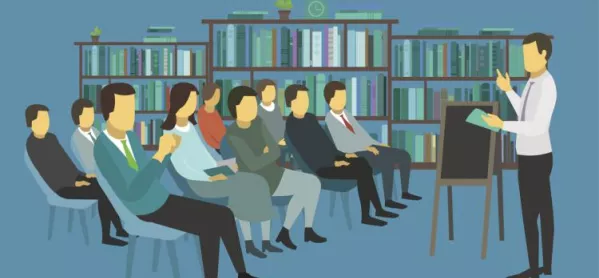“Oh no, not this again…" *collective groan*
Nothing is quite so demotivating as having to repeat the same CPD again and again. Too often, it's because the first time it didn’t seem to "stick". There’s the grumpy-with-folded-arms teacher at the back; the distracted-and-giggling clique in the corner; and, of course, the pretending-to-listen-but-actually-checking-emails member of the senior leadership team near the front, strategically hiding their laptop screen.
Why is it that one set of input is rarely enough to improve practice? And why does this lead to boredom and active hostility? Here’s five psychological biases that help explain why.
1. Confirmation bias
Our brains are quicker to adopt familiar ideas or new ideas that support existing thinking. We ignore or rapidly forget unfamiliar ideas, and block out or reject things that contradict what we already believe. Ever seen two people leave a conversation thinking that something different has been said? It’s a mixture of selective listening and confirmation bias, picking up the bits that seemed most interesting at the time.
The same is true with CPD. One single session is rarely enough to shift thinking, as we all cherry-pick the familiar and "easy-to-digest" bits and rapidly pronounce “this is basically the same thing we used to do”.
2. Sunk cost bias (or the Ikea effect)
We like to hold onto things that we’ve worked hard to achieve. Every person who’s built a piece of Ikea furniture is disproportionately proud of the final result, even if everyone on their road has exactly the same item. It’s the same in schools – people get unreasonably defensive if asked to change practice or resources for which they’ve put in time and effort. This means that we resist change, even if the new approach or resource is objectively better.
3. Dunning-Kruger effect
When you hear a new idea that "clicks", you feel a burst of excitement. It can happen with a book, a short lecture or a TED Talk video. In our enthusiasm about how some previously confusing things are then made to make sense, we mistake excitement for expertise. This has two problem consequences: leaders put on training based on the enthusiasm they feel rather than deep understanding, and teachers overestimate their expertise because they are so excited by an idea.
4. Halo effect
We tend to believe ideas from people we like or with whom we relate. If someone seems charismatic, if they sound like they understand us or if they’ve apparently achieved impressive things, then we rush to believe them. Conversely, if we take a personal dislike to someone, then we’re really quick to dismiss their ideas.
5. Fundamental attribution error
If someone says or does something that we don’t like, then we immediately assume they’re bad people. If someone swerves on the road, we assume they’re an idiot. If a colleague criticises us, we assume they’re mean. If we tell off a pupil, they think we’re so unfair. The trouble is, this means we’re resistant to criticism – as soon as someone says something negative, then, due to the halo effect, we stop believing their ideas.
It’s easy to spot these biases in other people, but we all inherently have these wired into the way we think. The solutions to these issues, and to having to repeat the same CPD sessions again and again because they don’t seem to have "stuck", is to build powerful CPD for all teachers – working hard to build quality relationships, avoiding one-off sessions like the plague and building professional development into a regular, embedded part of the day job. Importantly, we should also look out for the above biases and not be afraid to admit they exist, even in ourselves.
Bridget Clay is head of programme (Leading Together) at Teach First. She tweets @bridget89ec. David Weston is CEO of the Teacher Development Trust. He tweets @informed_edu
This column is based on their book, Unleashing Great Teaching, published by Routledge





